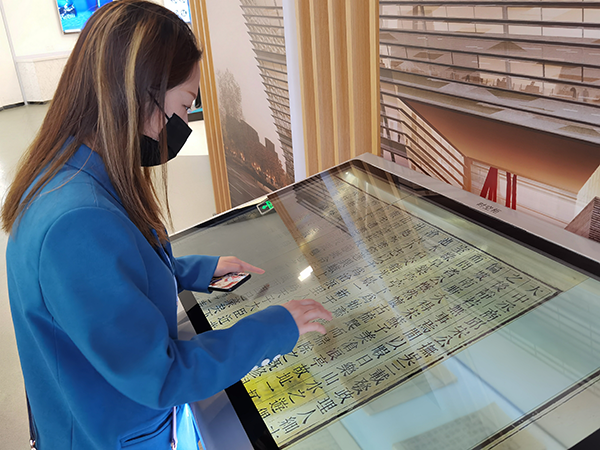
For the 26th World Book and Copyright Day last week, 10 Chinese libraries jointly released the digitized editions of over 1,700 volumes of ancient Chinese books.

This is the fourth expansion of the national database of ancient Chinese books since it went online in 2016. The database was launched by the National Center for Preservation and Conservation of Ancient Books, headquartered at the National Library of China in Beijing.
According to Rao Quan, director of the library and also head of the national center, 36 libraries and institutions with collections of ancient books have joined in the program, which aims to ensure free access to the paper-based ancient documents so that they can be more widely seen and utilized by the public. So far, 74,000 volumes of ancient texts, including 33,000 volumes from the collection of the National Library of China, have been recorded in the database.
"It's a key channel for further development of the study and protection of ancient books," Rao says."Digitization ensures the safety of these cultural resources and they can be more widely spread and brought to life if we explore their value on a deeper level."
The libraries involved in the recent release include the National Library of China, Nanjing Library, Tianjin Library, and other provincial, city and county-level institutions.
The new entries to the database not only include precious copies of ancient classics dating back to the Song (960-1279) and Yuan (1271-1368) dynasties, but also many firsthand accounts with local characteristics, which will resonate with modern people's daily lives.
For example, genealogies in Anhui, Zhejiang, Yunnan and Sichuan provinces, local chronicles in Hubei province, and documents on traditional Chinese medicine from Sichuan are among the recently digitized resources. Some ancient books written in Tibetan from the Tibet autonomous region are also among the new content added to the database.
In China, ancient books are defined as those created before the fall of the Qing Dynasty (1644-1911).
It was estimated that about 30 million ancient books were housed in public institutions nationwide after a national census of the books was launched in 2007, but the real number could be much higher than that. That's without even considering books in private collections, according to Su Pinhong, director of the executive office of the National Center for Preservation and Conservation of Ancient Books.
"Our digitization work also accompanies a lasting project to have a clear understanding of what we have'at home'," Su says."New findings from the national census have also been updated in the database."
The national census is coming to an end, and 2.7 million volumes of ancient Chinese books have been registered, and detailed information about 8 million copies of the registered books have also been put online for the public.